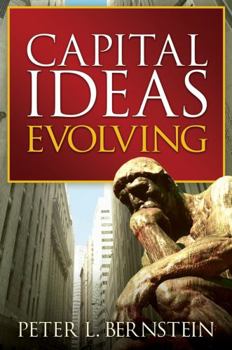Capital Ideas Evolving
Select Format
Select Condition 
Book Overview
Customer Reviews
Rated 4 starsCapital Ideas Evolving
This was not an easy read, but it was worth it. I received my MBA in 1976. Much of this book was an explanation of the effects of the Capital Asset Pricing Model (CAPM) on current investment practices. He assumes that the reader is well versed with the intricacies of CAPM. I had to go back to other sources to review CAPM, but once I did, the book was a great explanation of how CAPM and other academic innovations have had...
0Report
Rated 5 starsAccessible explanation of the foundations of finance
In the early 1950s, graduate student Harry Markowitz presented his Ph.D. dissertation to the University of Chicago economics department. The response was less than encouraging. "This isn't a dissertation in economics," Milton Friedman told Markowitz. "It's not math, it's not economics, it's not even business administration." Whatever it was, Markowitz's heterodox theory of portfolio selection changed finance forever and earned...
0Report
Rated 5 starsUnique and sunsurpassed.
I have recommended this and his previous book for finance graduate students at the University of Maryland.
0Report















